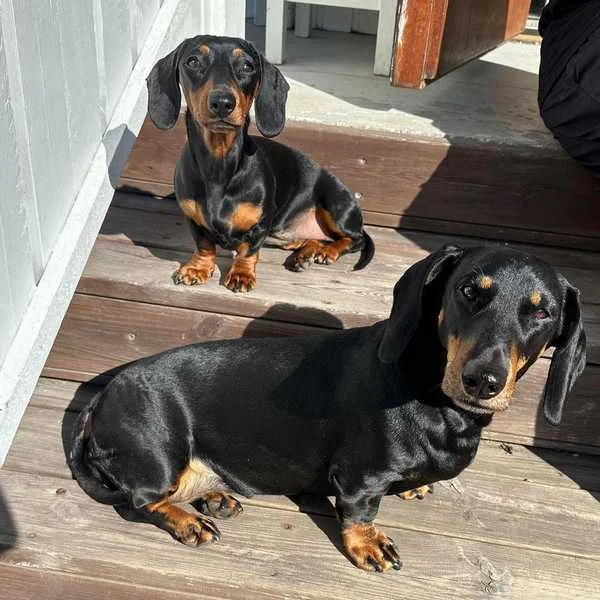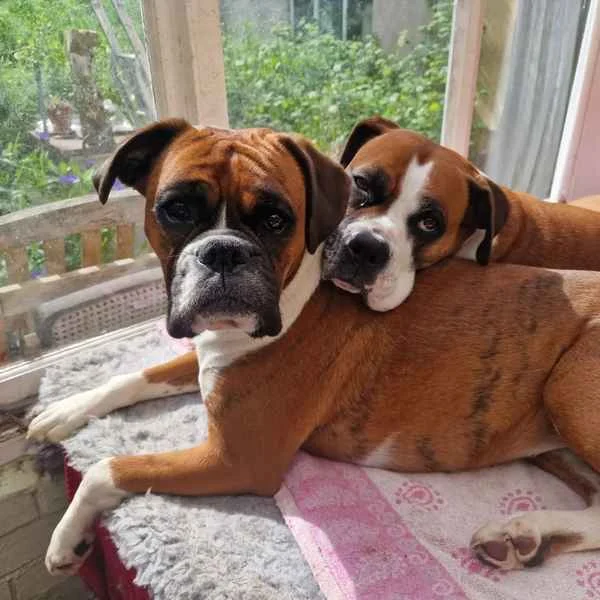Are you someone with a packed schedule who adores dogs but lacks the time to dedicate to grooming and caring for a high-maintenance breed? Well, consider yourself fortunate! Short-haired dog breeds are tailor-made for low-maintenance owners seeking the joy of furry companionship without the added burden of constant grooming. From delightful Poodles to charming Chihuahuas, a wide array of breeds awaits, each offering not only ease of care but also a deep capacity for love and loyalty.
In this article, we will delve deeper into the finest short-haired dog breeds for low-maintenance owners, shedding light on their distinctive characteristics and significant advantages. Whether you seek a four-legged friend to brighten your busy schedule or simply desire a low-maintenance pet that won't demand excessive upkeep, continue reading to discover the ideal breed for you!
Low-Maintenance Short-Haired Dog Breeds
Why Short-Haired Dog Breeds Are Low-Maintenance
Short-haired dog breeds have several advantages that make them ideal for low-maintenance owners. Their short coats require less brushing and grooming, which saves time and effort. Additionally, they tend to shed less compared to long-haired breeds, reducing the amount of hair cleanup needed around the house. These breeds also often have fewer issues with matting and tangling, eliminating the need for frequent detangling sessions. Overall, short-haired dog breeds offer a convenient and hassle-free grooming experience.
Top 5 Short-Haired Dog Breeds for Low-Maintenance Owners
Chihuahuas
Renowned for their petite size and larger-than-life personalities, Chihuahuas are low-maintenance dogs that thrive in apartment living. Their short coats require only occasional brushing and exhibit minimal shedding.
Dachshunds
With their elongated bodies and playful dispositions, Dachshunds make wonderful companions. Their short coats are easily maintained through regular brushing and have minimal grooming requirements.
Beagles
Beagles are friendly, energetic canines sporting short, dense coats. They necessitate minimal grooming, with occasional brushing to maintain the condition of their coats.
Boxers
Intelligent, high-spirited, and fiercely loyal, Boxers are known for their short coats, which demand little maintenance and only require sporadic brushing to keep them looking their best.
Greyhounds
Known for their elegance and agility, Greyhounds come in various forms, including the Italian Greyhound, celebrated for its petite size and charming demeanor. Their short, sleek coats require minimal upkeep, appealing to busy owners. With infrequent shedding and low grooming demands, these dogs offer convenience without compromising on grace and beauty.
Characteristics of Each Short-Haired Dog Breed
Chihuahua
Chihuahuas are small-sized dogs known for their spunky personalities. They typically weigh between 2 to 6 pounds and stand about 5 to 8 inches tall. Despite their size, they are often fearless and confident. Chihuahuas are energetic and require regular exercise to keep them happy and healthy. It's important to note that they may be prone to dental issues because of their small mouths.
Dachshund
Dachshunds come in different sizes, including standard, miniature, and toy. They have a distinctive elongated body and short legs. Dachshunds are known for their playful nature and make great companions for families. Regular exercise is essential for Dachshunds to prevent weight gain and maintain their overall well-being. Due to their long backs, they may be more susceptible to spinal issues, so care should be taken to prevent jumping from heights.
Beagle
Beagles are medium-sized dogs with a friendly and outgoing personality. They typically weigh between 20 to 30 pounds and stand about 13 to 15 inches tall. Beagles have a keen sense of smell and are often used for tracking and hunting. They are energetic and require regular exercise to keep them mentally and physically stimulated. Beagles are known for their loyalty and make wonderful family pets.
Boxer
Boxers are medium to large-sized dogs with a muscular build. They typically weigh between 55 to 70 pounds and stand about 21 to 25 inches tall. Boxers are intelligent, energetic, and highly trainable. They have a playful nature and make excellent companions for active individuals or families. Regular exercise is crucial for Boxers to channel their energy and prevent boredom. They are known for their loyalty and protective instincts, making them great guard dogs.
Greyhound
Greyhounds are large-sized dogs known for their grace and speed. They typically weigh between 60 to 70 pounds and stand about 27 to 30 inches tall. Despite their athletic abilities, Greyhounds are generally calm and gentle. They have a laid-back nature and require regular exercise to stretch their long legs. Greyhounds have a short coat that is easy to maintain, and they are known to be low shedders.
Potential owners should consider the size, temperament, exercise needs, and specific considerations of each breed before making a decision. It's important to choose a breed that aligns with your lifestyle, living situation, and ability to provide the necessary care and exercise. Consulting with breeders or reputable sources can provide additional insights into the specific characteristics of each breed.
Pros and Cons of Owning a Short-Haired Dog Breed
Owning a short-haired dog breed comes with its own set of advantages and disadvantages. It's essential to carefully weigh the pros and cons before making a decision.
Pros:
- Minimal Shedding: Short-haired dog breeds tend to shed less compared to their long-haired counterparts, meaning less time spent cleaning up fur. You may be interested in Small Dogs That Don't Shed Hair
- Easy Grooming: Their coats are generally easier to maintain, requiring less brushing and fewer detangling sessions.
- Lower Allergy Risk: Though no breed is truly hypoallergenic, shorter hair may trap fewer allergens like dander.
- Quick Drying: Short hair dries faster after baths or rainy walks, reducing the chance of chills.
Cons:
- Limited Insulation: Short-haired breeds may be more sensitive to extreme weather, needing extra warmth in winter.
- Seasonal Shedding: Some breeds still experience seasonal shedding, which may require extra grooming.
- Sunburn Risk: Dogs with light-colored coats or exposed skin may need sun protection.
- Limited Variety: Short-haired breeds may offer fewer coat textures and colors than long-haired breeds.
Tips for Taking Care of Short-Haired Dog Breeds
Grooming
Even though their grooming needs are low, brush their coats regularly to remove loose hair and keep skin healthy. Check ears, trim nails, and bathe them as needed.
Nutrition
Provide a balanced diet based on your vet's recommendations. Monitor their weight and avoid overfeeding.
Exercise
Short-haired dogs often have high energy levels. Ensure daily walks and mental stimulation based on breed-specific needs.
Veterinary Care
Keep up with regular vet visits, vaccinations, parasite prevention, and dental care.
Mental Stimulation
Use interactive toys, training sessions, and games to prevent boredom.
Socialization
Expose your dog to different environments, people, and other animals early on. Training classes can help too.
Safety
Create a safe living space and avoid exposing your dog to harmful substances or dangerous situations.
Love and Attention
Provide affection and positive reinforcement. Strong bonds lead to happier, better-behaved pets.
Common Health Issues of Short-Haired Dog Breeds
Skin Allergies
Short-haired breeds can suffer from skin allergies triggered by food, environment, or parasites. Use vet-recommended grooming products and seek medical advice if symptoms persist.
Joint Problems
Breeds prone to obesity or with unique body structures (like Dachshunds) may develop joint issues. Maintain a healthy weight and use joint supplements if needed.
Dental Issues
Regular dental care, including brushing and dental chews, helps prevent gum disease and tooth decay.
Eye Conditions
Short-haired breeds may be prone to cataracts, dry eyes, or other conditions. Schedule regular eye exams.
Heat Sensitivity
Short-haired dogs are more vulnerable to heatstroke. Ensure they have shade, water, and avoid intense activity in hot weather. You may be interested in Tips To Make Your Dog Drink More Water
Conclusion
For those seeking a dog that requires minimal grooming, short-haired dog breeds are an excellent choice. These breeds, ranging from the spirited Chihuahua to the elegant Greyhound, offer a balance of companionship and low-maintenance care.
Choosing the right breed depends on your lifestyle and preferences. With proper care, exercise, and affection, you’ll enjoy a strong bond with your dog without the stress of constant grooming.
So, if you're a busy individual seeking the joys of dog ownership without the hassle, a short-haired breed might be your ideal match. Embrace the opportunity to welcome a low-maintenance furry friend into your life and enjoy the countless rewards they bring.






